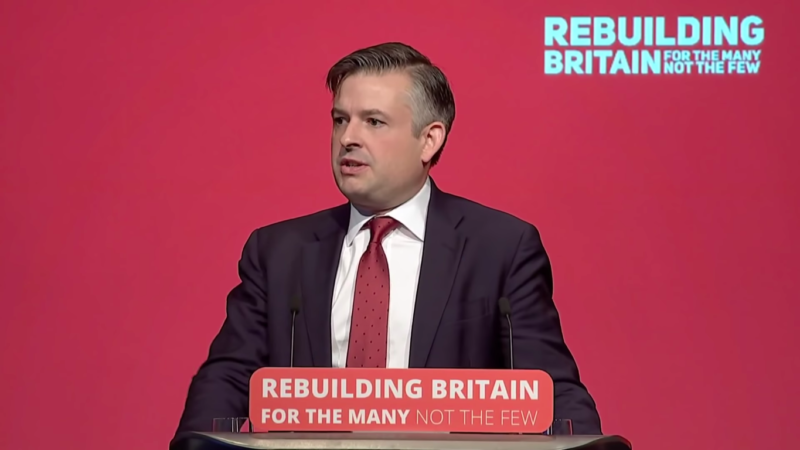
Recently, 200 pairs of shoes were placed outside parliament – a pair of shoes in Parliament Square for every child that had taken their life in a year. Addressing this vigil was Rachel. She spoke movingly about her daughter’s eating disorder and her distressing experience of mental health services, which saw her family pushed from pillar to post in a bewildering cycle. They live in the East Midlands, and to be able to get treatment she had to move 300 miles away to a unit in Scotland.
It is stories like this one that make me determined to build the mental health services that our children deserve. Children and young people in this country are currently in the midst of a mental health epidemic, with more children than ever before experiencing poor mental health. The Children’s Commissioner has rightly rang the alarm, warning that 800,000 children are living with mental health disorders – that’s at least three young people in every classroom.
Yet years of cuts and staffing shortages has left health services struggling to provide the levels of care any parent would want for their child. For example, shockingly 100,000 children are denied mental health treatment each year because their problems aren’t deemed ‘serious’ enough. For problems that are deemed serious, 500 children wait beyond a year for specialist mental health treatment.
For years, health bosses have raided Child and Adolescent Mental Health Services (CAMHS) budgets to fund wider day-to-day spending in the NHS. Ministerial incompetence has left us with a crisis in the workforce: 4,500 fewer mental health nurses and chronic shortages of consultant psychiatrists.
Labour’s policy of restoring an enhanced training bursary for nurses will be a crucial starting point to tackling the workforce crisis in mental health. Bed cuts force hundreds of children to non-local beds, sometimes more than a hundred miles away often in substandard private providers.
Tory politicians talk of parity of esteem yet, when unveiling pre-election lists of supposed hospital rebuilds, fail to even acknowledge the need for serious investment to upgrade mental health facilities and ensure we have more capacity across the service.
Early intervention is key in mental health. The evidence shows that children who suffer abuse, neglect and trauma – referred to as Adverse Childhood Experiences (ACEs) – are more likely to suffer mental health problems and other physical problems later in life.
If mental health problems are detected early, children can be supported with their mental health at school. At the last election, Labour promised to extend school counselling services. Ensuring there’s a trained professional available for young people will mean mental health services are better integrated with education, and crucially, give young people somewhere to turn.
But addressing poor mental health doesn’t just happen in our schools and hospitals. It happens in our communities, families, and online. That’s why we are also looking outside the health system to tackle mental ill health.
There is an injustice in our society where children and adults living in poverty are up to three times more likely to develop mental health problems compared to those living in the highest income brackets. In the most deprived areas, we see a higher rate of suicide a higher rate of addictions and higher rates of drug overdose deaths too.
Tackling these health inequalities is one of my main priorities. The next Labour government will adopt a comprehensive, cross-government national strategy to tackle health inequalities, attacking the wider determinants of ill health and putting prevention first.
I believe a plain, clear, simple commitment to improving happiness and wellbeing would force significant change and force policy-makers to think through the long-term implications of decisions, not just the pounds and pence of GDP.
That’s why I’ve committed a Labour government to introducing a Future Generations Wellbeing Act. Fundamentally such an Act will commit the next Labour government to a ‘health in all policies’ approach with ‘health equality audits’ of all government decisions. It will enshrine our commitments in legislation to ensuring life expectancy match the best of our international peers and that children enjoy the best health and wellbeing outcomes possible.
Children’s health, including mental health, will be a national priority. And addressing wellbeing and tackling inequality forces us to think about the kind of society we want to leave for the generations who follow us. It will be one where people live longer, healthier, happier lives. That’s something worth fighting for.




More from LabourList
‘Labour council candidates – it’s tough, but all is not lost’
‘Labour won’t stop the far right by changing leaders — only by proving what the left can deliver’
‘Cutting Welsh university funding would be economic vandalism, not reform’